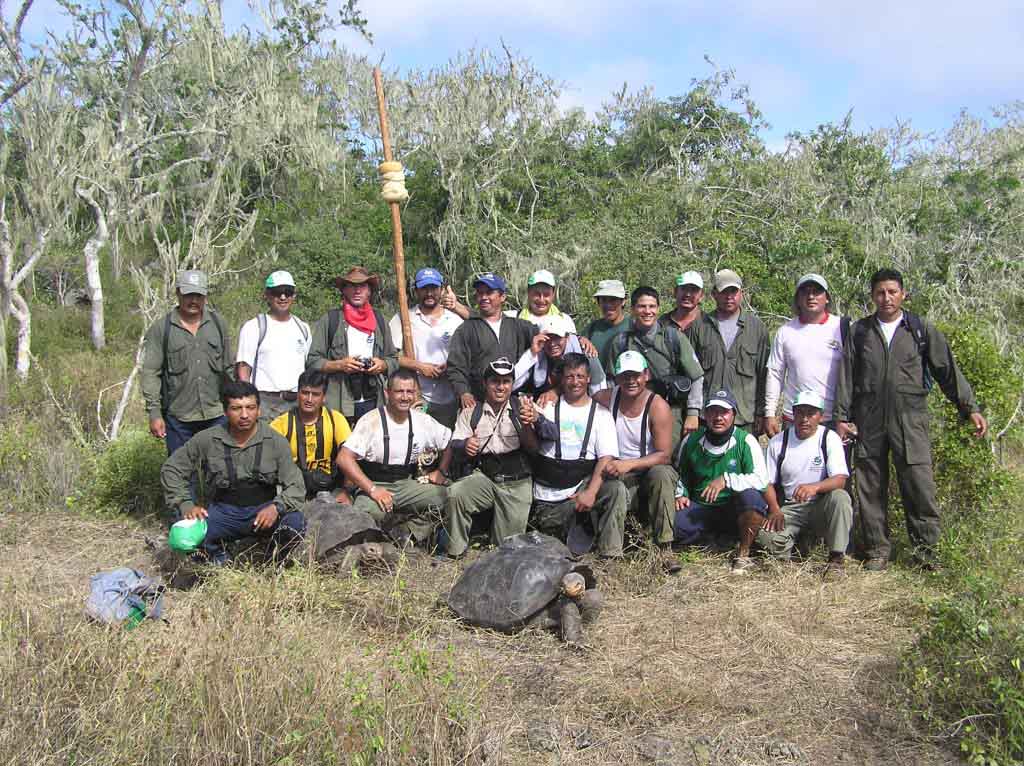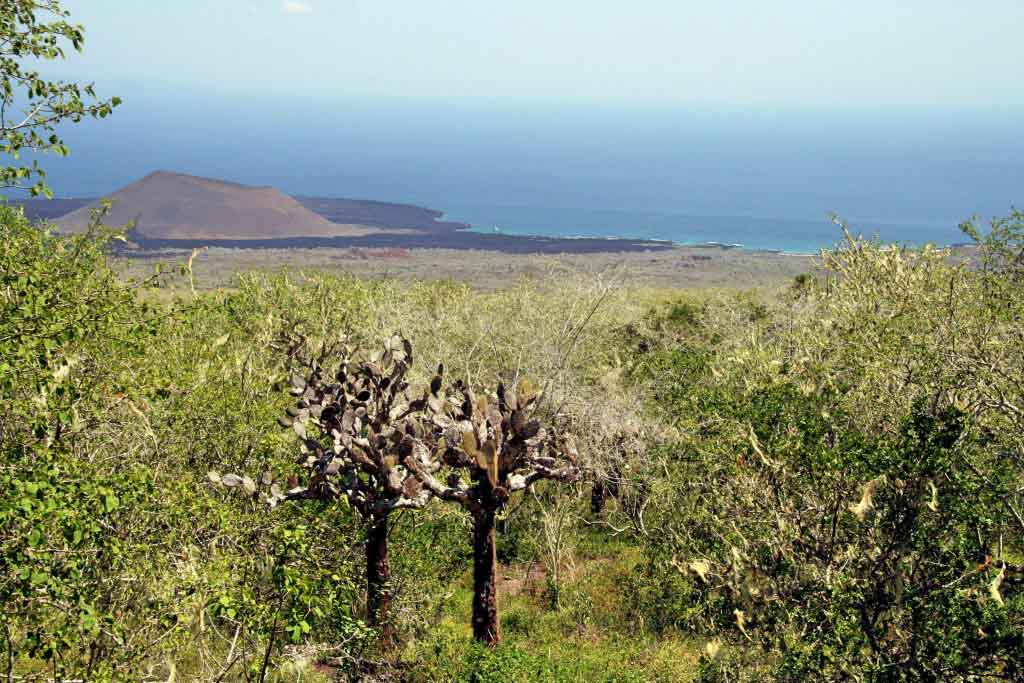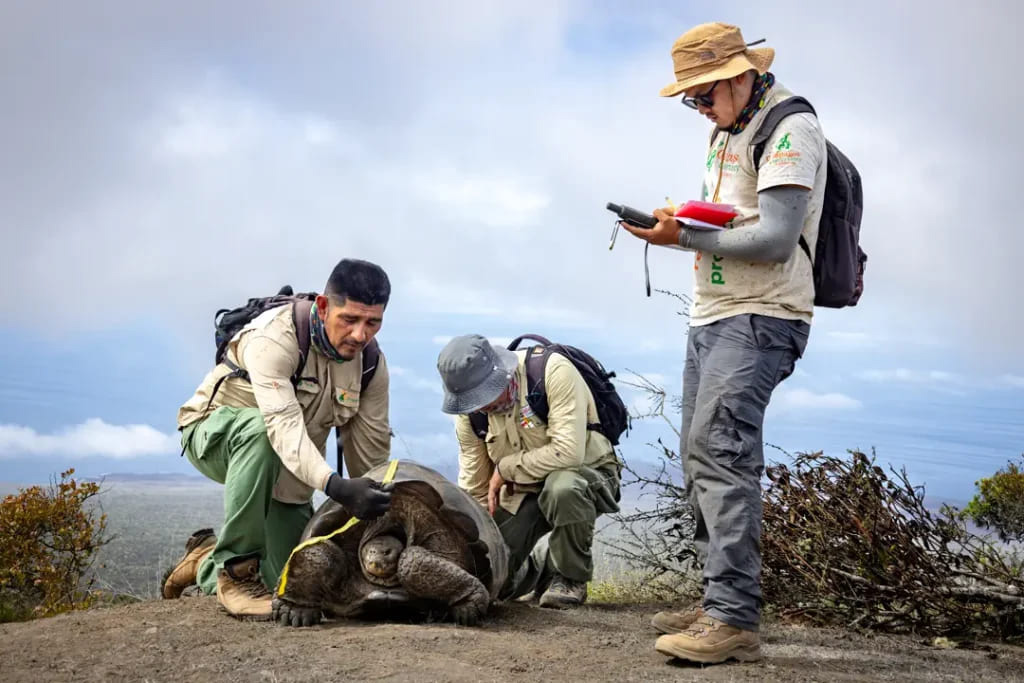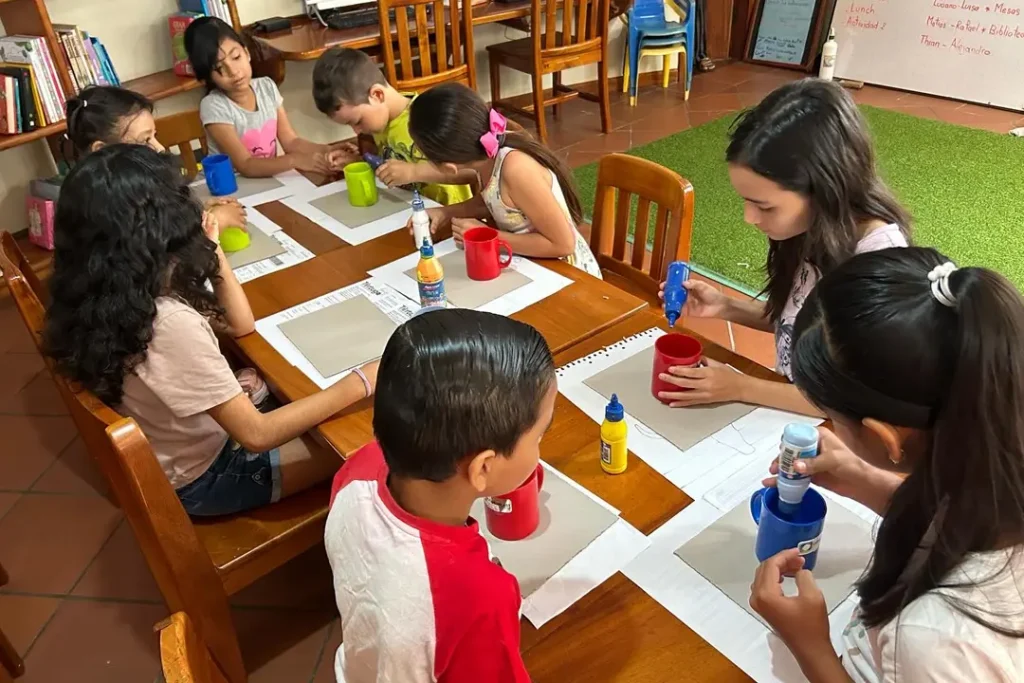According to Dr. Jorge Carrion (Conservation Director at the Galapagos Conservancy) and the expedition’s scientific leader: The expedition’s goal is to confirm the island’s ecosystem in relation to tortoises and their effect on species such as the Opuntia Cactus and woody plant species.
Pinta Island was home to approximately 40,000 feral horses, which caused severe damage to the island’s natural and endemic plants and had a detrimental effect on the entire environment. The GNPD worked hard to eradicate this invasive species in 2003. Since then, the native vegetation has quickly recovered.
Carrion noted that this achievement was a great accomplishment and said that “Pinta Island restoration requires the presence Giant Tortoises since they act as ecosystem engineers, dispersing the seeds endemic plants and opening areas for new vegetation growth with large legs.” It was a wonderful decision to release the Giant Tortoises onto Pinta in 2010. Now, 12 years later we want to find out how they use the different habitats in Pinta,” he said.
Pinta’s ecological surveys of tortoise species and plants were last conducted in 2011. The expedition will be held at the end August as part of Initiativa Galapagos efforts by the GNPD and Galapagos Conservancy together to restore Giant Tortoise population and thereby improve the natural dynamics in the ecosystems of Galapagos Archipelago.

People celebrating release of tortoise at site Flanagan © James Gibbs / Galápagos Conservancy



